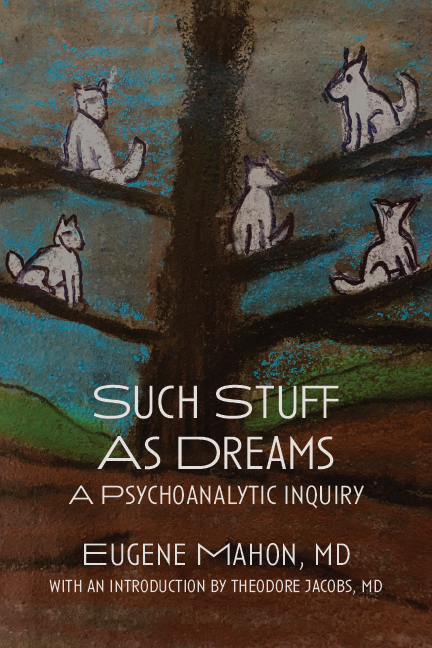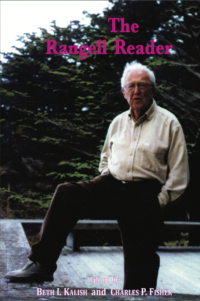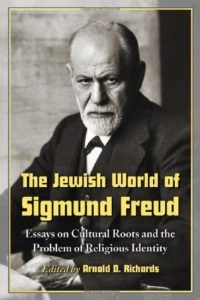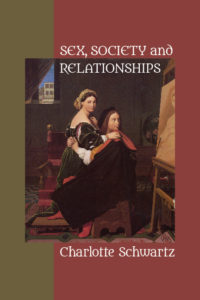Such Stuff As Dreams by Eugene Mahon
$29.95
Praise for Such Stuff as Dreams:
It is said that man is a rational animal. True, at times, at least for some men. Less commented upon but true at all times for all men is being an irrational animal. Children, poets and artists draw on their creative irrationality and every one of us spends a major part of life in that universal creative irrational act—dreams.
Eugene Mahon is a psychoanalyst, a poet, a child psychiatrist and a Shakespeare scholar, all rles that bring him in regular contact with dreams, and he is a master teacher of how to understand them and to interpret them. In his brilliant new book he traces the evolution of Freud’s discovery of the meaning of dreams, their link to unconscious processes, and how the psychoanalyst approaches them and uses them in treatment.
Mahon unlocks some special dreams strategies, dreams within dreams, films, jokes, puns and cartoons, all revealing how the dreamer’s unconscious thinks, portrays and then conceals the dreamer’s wishes. Mahon the poet shows how Shakespeare and James Joyce used dreams, while Mahon the child psychiatrist leads us in exploring the dreams of children. Throughout, Mahon the psychoanalyst uses dreams to teach us how the mind works, and how the psychoanalyst goes about exploring and understanding it.–Robert Michels, M.D., Walsh McDermott University Professor of Medicine and Psychiatry Weill Cornell Medicine; Chair, Board of Directors. The Psychoanalytic Quarterly, Former Joint Editor-in-Chief The International Journal of Psychoanalysis
As well as an adult analyst, Eugene Mahon is fully a child psychoanalyst, a child in spirit and an analyst in practice. His thinking unites the wonder of early curiosity with scholarly sophistication rooted in the depth of clinical experience and the breadth of cultural richness – all expressed with the engaging vitality of a gifted poet. This stunning tour de force brings dreams to life, but it also brings life to life. Bountiful in clinical experiences, literature, jokes, even the world of daily politics, the captivating immediacy is entertaining while deepening understanding. I think Ella Freeman Sharpe will be delighted to have Mahon’s company on the small shelf of essential works on dreams. Enjoy and learn.–Warren S. Poland, Author Intimacy and Separateness in Psychoanalysis
In this multi-faceted artistic creation, Eugene Mahon captures the elusive beauty of dreaming. Beginning with an innovative account of Freud’s use of his own dreams to build the foundations of psychoanalysis, Mahon takes his readers on an imaginative tour of the world of dreams. We encounter a stunning dream within a dream in Shakespeare’s Richard III and take a close look at James Joyce’s “esthetic of the dream.” I was especially moved by Mahon’s portrayal of the creative genius at work in the sleeping mind of every human dreamer. In his elegant prose, he brings a contemporary sensibility to Freud’s conflict model, elaborating new insights in relation to well-known material. We see the evolution of dreams in a child first seen at age 4 and later at almost 50. Then, in a series of chapters, we see the brilliant magic tricks of typical dreamers who use puns, parapraxes, jokes, cartoons, film, literature, or the uncanny to draw attention to the surface of a dream “the better to keep the audience off the scent of all that the magician is not revealing.” Mahon’s tour de force generates a feeling of awe about dream-work and dream interpretation, as well as gratitude towards the author.–Charles P. Fisher, Training and Supervising Analyst, San Francisco Center for Psychoanalysis; Personal and Supervising Analyst, Psychoanalytic Institute of Northern California
From the Introduction by Theodore Jacobs:
Dreams have always been at the center of the analytic endeavor. By his own estimation and those of analysts world-wide, Sigmund Freud’s most important contribution to psychoanalysis was his 1900
masterwork, The Interpretation of Dreams. This seminal study, remarkable for Freud’s capacity for self-analysis as well as his illumination of the workings of the unconscious as it produces its nightly creations, has been for more than a century, the fundamental text and source for our understanding of the fascinating and enigmatic world of dreams.
Our contemporary focus on other aspects of psychoanalysis; infantmother research, neuro-analysis, gender studies, the psychoanalytic understanding of social and economic issues, and the ongoing discussions and debates over competitive theoretical approaches, has largely replaced interest in dreams as the royal road to the unconscious. The result has been that in recent years there have been relatively few clinical or theoretical studies of dreams and their place in analytic practice.
A most welcome exception to this trend has been the invaluable contributions of Dr. Eugene Mahon.
Writing with the elegance and grace for which he is well known in his role as one of the Country’s most gifted poets, over the past several years Dr. Mahon has published a series of remarkable papers that have enhanced our knowledge and understanding of dreams in a highly creative and clinically valuable way. Whether providing a novel and insightful reading of Freud’s classic study of dreams, writing about dreams within dreams, offering a remarkable account of one man’s dreams from childhood to his sixth decade of life, or any of the other topics included in this essential volume. Eugene Mahon has offered us fresh and much needed insights into aspects of dream life that we regularly encounter in our clinical work.
The subjects that Dr. Mahon addresses have not been previously discussed in the illuminating way that characterizes his writing; and by bringing these seminal essays together in this volume, he has rendered a great service to the analytic community.
It is rare in our field for an author to explore a topic that not only is of interest to, and important for, analysts of every theoretical persuasion, but to do so in a way that adds to our knowledge of both the theory and the clinical application of the subject under discussion. In this unique and important volume, Eugene Mahon has accomplished that rare feat. Reading it, I found, as I believe you will also, that I learned more about dreams in general and particular aspects of dreams that I knew little about, than I had since reading Freud’s original work. To have such an experience is not only rare, but quite wonderful.
Eugene Mahon has given all of us a precious gift, one for which we are immensely grateful.
In stock




